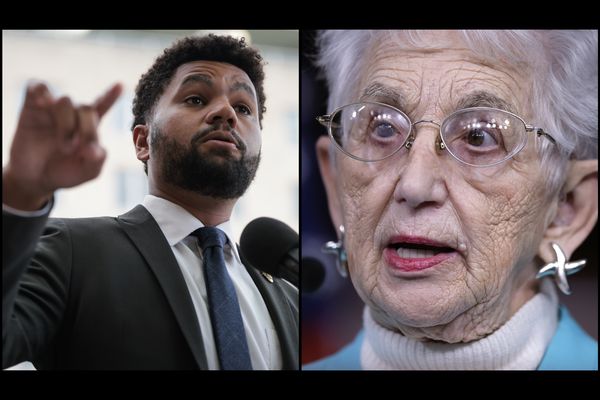
Scott Morrison says he and his government did everything they “possibly could have” for women while he was prime minister, and has called criticism of his actions a pile-on which was “weaponised for political purposes”.
Morrison has also said he believes he was “to a large extent cancelled” because of his Christianity and that he became the focus of derision and attacks “because of my faith”.
Australia’s 30th prime minister is on a book tour promoting his book Plans for Your Good: A Prime Minister’s Testimony of God’s Faithfulness, which details his Pentecostal faith, introducing himself to American audiences as part of his new role consulting role with a US firm.
In an interview with the podcast The Briefing, released on Saturday, Morrison defended his response to events like the Women’s March for Justice and the issue of violence against women in general.
“I did everything I believe I possibly could have and that’s my honest answer,” he said in response to a question on whether he “could and should have done more”.
Morrison said that as treasurer he increased funding for the national plan for stopping violence against women and children by $200m “and then billions, billions in my last budget”, and was committed to not just addressing domestic violence but women’s health issues as well.
“When I say it shouldn’t be politicised, [domestic and family violence is] certainly a matter of politics, there’s no doubt about that,” he said.
“But I was disappointed that the issue was weaponised for partisan purposes and weaponised for political purposes.”
Morrison refused to meet the organisers of the 2021 march to parliament, and later said it was a “triumph of democracy” the protesters had not been “met with bullets”.
The Morrison government was also forced to “clarify” how domestic violence funding would be distributed to frontline organisations, after miscommunicating how promised budget funding would be allocated.
Morrison said his the physical exhaustion of the pandemic combined with “what was a pretty intense political pile on after the 2019 election where those who are pretty unhappy about me winning … decided to go very personal”, had taken a toll on his wellbeing.
“We’re not made of stone, politicians,” he said. “Without complaining about it, but it’s a pretty brutal business and when you’re subjected to that over a long period of time, it takes a toll.”
Morrison told the podcast he was concerned “about what I see as a form of tyranny” emerging in secularism “which is seeking to shut religious and Christian conversation out” of public spaces. He also said his religious faith had been used to try and “cancel” him.
“If you don’t think cancel culture applies when it comes to people of Christian faiths in this country, then look a lot closer,” he said, adding that he was “mocked” for attending his church on Easter Sunday.
“There was a an essence of, well, if you go to an evangelical church, there must be something wrong with you, maybe you’re pitching for a job in the United States,” he said.
“No, it’s, I think, a lack of understanding about these things and I think in a free society there needs to be greater tolerance of people’s different religious views and their own Christianity and how you practice that. And increasingly, sadly, I think we’re seeing less of that.”
Morrison quit federal politics at the end of February, after securing a job with American Global Strategies. The former US vice-president Mike Pence wrote the foreword to Morrison’s book.







